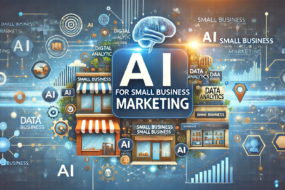
“Which are the key elements to building a digital culture?” In our fast-paced, technology-driven world, organizations are in constant pursuit of methods to stay competitive. A pivotal shift in this quest is the development of a digital culture. But what precisely constitutes the key elements in constructing a digital culture, and why are they indispensable? This blog post will unravel these essential components, shedding light on their significance for the success of businesses in the 21st century.
The transformation from traditional to digital culture is not just about adopting the latest software or tools; it’s a comprehensive change in how organizations operate, interact with customers, and empower their employees. By understanding and implementing the fundamental components of a digital culture, companies can position themselves to thrive in an era where digital innovation is the name of the game. So, let’s dive into the core elements that underpin this digital revolution and explore how they can open the door to success in the digital realm age.
What Is A Digital Culture?
A digital culture is a transformative approach to how organizations operate, interact, and adapt to the digital age. It encompasses the attitudes, behaviors, practices, and values that shape an organization’s response to the rapidly changing digital landscape. In essence, it’s a way of thinking and acting that embraces digital technologies and innovation as integral components of the business.
Which Are The Key Elements To Building A Digital Culture?
Building a digital culture within an organization requires a thoughtful and strategic approach. Here are the key elements that play a crucial role in establishing and nurturing a digital culture:
- Leadership Buy-In:
- Leadership must champion and exemplify digital transformation. They should be actively involved in digital initiatives, setting the tone for the rest of the organization.
- Clear Vision and Strategy:
- Develop a clear, well-defined digital strategy aligning with the organization’s goals. Communicate this strategy to all employees so they understand the importance of digital initiatives.
- Digital Literacy and Training:
- Invest in digital literacy programs to ensure employees at all levels have the skills and knowledge to leverage digital tools and technologies effectively.
- Open Communication:
- Promote open communication and the exchange of ideas among employees. Create channels for collaboration and information exchange.
- Agile Mindset:
- Foster an agile mindset that embraces change, experimentation, and adaptability. Encourage employees to be open to trying new approaches and learning from failures.
- Customer-Centric Approach:
- Prioritize the customer experience, understand the needs and preferences of your customers, and utilize digital tools to tailor your products and services to meet those needs.
- Data-Driven Decision Making:
- Implement data analytics and reporting systems to make informed decisions. Ensure that data is accessible to those who need it and that insights are used for continuous improvement.
- Innovation Culture:
- Foster an innovative culture that motivates employees to develop new ideas and solutions. Recognize and reward innovation.
- Cross-Functional Collaboration:
- Dismantle silos and promote collaboration among various departments and teams. Cross-functional collaboration can lead to creative solutions and improved efficiency.
- Digital Tools and Infrastructure:
- Invest in the necessary digital tools and infrastructure to support your digital initiatives. Ensure that these tools are user-friendly and aligned with your goals.
- Measurable Objectives:
- Set clear, measurable objectives for your digital transformation efforts. Regularly track progress and adjust strategies as needed to achieve these objectives.
- Continuous Learning:
- Promote a culture of continual learning and enhancement. Keep up with industry trends and emerging technologies.
Types Of Digital Culture
Digital culture can take on various forms, reflecting how technology and the digital environment shape our lives. Here are some types of digital culture:
- Tech-Savvy Culture: This culture emphasizes technology literacy and the early adoption of new digital trends, making it relevant in an ever-evolving digital landscape.
- Startup and Entrepreneurial Culture: Focusing on innovation and digital tools, this culture reflects the growth of startups and entrepreneurship in the digital age.
- Online Gaming Culture: The world of online gaming, including esports and gaming communities, has grown significantly, shaping a vibrant digital culture.
- Social Media Culture: The pervasive influence of social media on communication, personal branding, and content sharing makes this culture highly relevant and widespread.
- Hacker and Cybersecurity Culture: With the increasing importance of data security and ethical hacking, this culture plays a critical role in safeguarding digital assets.
- Digital Art and NFT Culture: The emergence of digital art and NFTs, driven by blockchain technology, is a rapidly evolving and significant cultural trend.
- Digital Nomad Culture: In a world where remote work and digital connectivity are becoming more common, digital nomad culture reflects the desire for location-independent lifestyles.
- AI and Automation Culture: As artificial intelligence and automation technologies become central in many industries, this culture revolves around their development and impact.
Examples Of Digital Culture
Here are some examples of digital culture in various contexts:
- Remote Work: The extensive embrace of remote work during the COVID-19 pandemic demonstrated a shift toward digital culture. Companies have embraced digital communication tools like Zoom, Slack, and Microsoft Teams to enable remote collaboration and maintain productivity.
- E-learning and Online Education: The education sector increasingly relies on digital culture. Online learning platforms like Coursera, edX, and Khan Academy offer various courses, making education more accessible worldwide.
- E-commerce and Online Retail: Companies like Amazon and Alibaba have transformed the retail industry by leveraging digital technology to provide a seamless online shopping experience, personalized recommendations, and efficient delivery services.
- Fintech and Online Banking: Digital culture has disrupted the financial industry, witnessing the ascent of fintech companies like PayPal, Square, and Robinhood, which offer online payment solutions, mobile banking, and commission-free trading.
- Social Media: Platforms like Facebook, Instagram, Twitter, and TikTok play a significant role in revolutionizing communication and content sharing, demonstrating the impact of digital culture on how people connect and share information.
- Digital Health and Telemedicine: The healthcare industry embraces digital culture through telemedicine platforms, wearable health devices, and electronic health records, enabling remote consultations and personalized health tracking.
- Streaming Services: Companies like Netflix, Spotify, and Disney+ have transformed the entertainment industry by offering on-demand streaming content, personalized recommendations, and original programming.
- Blockchain and Cryptocurrency: Technologies like blockchain and cryptocurrencies (e.g., Bitcoin and Ethereum) represent the digital culture’s impact on finance, offering decentralized and secure solutions for transactions and smart contracts.
Conclusion
Which are the critical elements to building a digital culture?” is a question that has never been more relevant in our fast-evolving digital landscape. By understanding and embracing these key elements, organizations can adjust to the challenges and opportunities presented by the digital age and thrive in a world where innovation and technology drive success.
We invite you to share your thoughts and insights on building a digital culture in the comments below. How has your organization integrated these elements, and what experiences or tips can you offer to others embarking on a similar journey? Your valuable input will contribute to the ongoing conversation about the vital role of digital culture in shaping the future of businesses.








No Comments